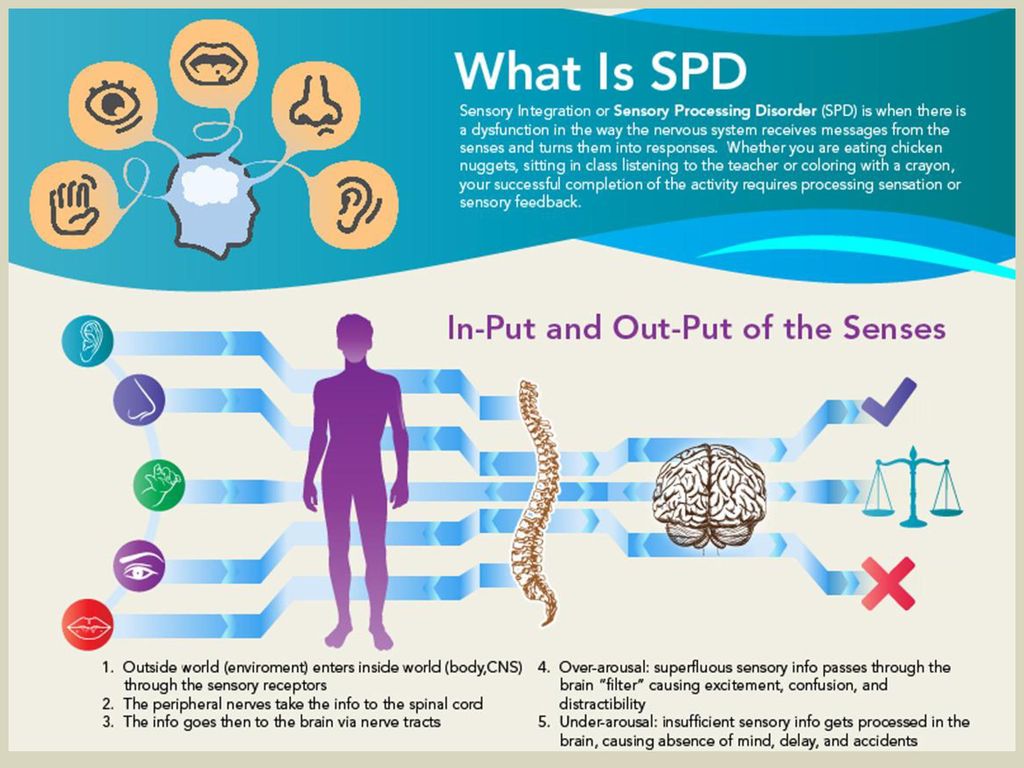How to overcome extreme shyness
9 Tips to Learn to Overcome Shyness
Jump to section
What is shyness, exactly?
3 common causes of shyness
Distinguishing between shyness and anxiety
9 ways to overcome shyness
Moving forward
Picture this: You're in a room full of people, and everyone seems to be socializing and having a great time except for you. You're standing off to the side, alone. There are many opportunities at this social event to meet people and make small talk, but you can’t bring yourself to strike up a conversation.
Sound familiar?
It can be annoying when people tell you how not to be shy. They think that to overcome shyness, you need to put yourself out there. But how? It's not easy for everyone to carry a conversation with people they don’t know. Some people's social skills don’t come as naturally as others, and that's okay.
Luckily, there are ways to learn more about why certain situations make you feel shy — and how to overcome them.
What is shyness, exactly?
Shyness causes you to keep others at a distance and avoid social situations. It can make you feel self-conscious or insecure during social interactions with others. You might become dizzy, sweaty, feel your stomach do somersaults, stumble over your words, or all of the above.
Shyness can have an impact on all parts of your life. It could sneak in and be present at work, in your personal life, and anywhere in between. It might impact your self-esteem or your self-confidence.
Shy people have trouble making new friends. Plus, feeling shy can stop people from public speaking and having a busy social life.
Because social interactions are essential, shyness tarnishes that part of life away from people. It can cause people to feel isolated and lonely if they can’t interact enough.
3 common causes of shyness
Shyness has multiple causes. What can cause shyness for some people may not be for others.
Here are three potential factors that can cause shyness:
1.
 Inherited genes
Inherited genesIf you have shy family members, it could be a genetic or environmental influence — or both. But these personality traits aren’t set in stone. Being a shy child doesn't mean that you’ll be a shy adult.
2. Environmental influences
The environment in which you grew up has a lot of impact on you. It can have a hold on you for many years to come.
Having stringent parents who outlined everything you could — and couldn't — do as a child, can make it hard to step outside your comfort zone as an adult. Or, if you grew up in an unsafe environment, you could be scared to put yourself out there in social settings.
3. Traumatic experiences
Traumatic experiences from childhood can stay with you into adulthood. For instance, being bullied as a kid could cause your shyness to develop. Or, if you were ridiculed and teased for your hobbies or passions as a young person, you may be hesitant to express them now.
Living through a change in your family dynamic — from divorce or death — can also lead to shyness.
No matter why you're shy, a BetterUp coach can help you understand the reasons behind your shyness and how you can overcome them. Our individual coaching options will guide you at your own pace to move past your shyness.
This will help you start feeling better about your social interactions to meet your goals.
Distinguishing between shyness and anxiety
It's essential to identify what exactly you're trying to overcome. Shyness, social anxiety, and introversion are often confused with one another. At first, you might think you have social anxiety when in fact you’re shy since social anxiety and shyness can often resemble one another.
While they share similarities and may overlap, or someone may experience all three, they’re quite different.
A social anxiety disorder is a mental health issue, while introversion and shyness aren’t.
People who have social anxiety can be introverts, but it stems from a fear of rejection, criticism from others, and self-criticism. People may withdraw from social settings and keep more to themselves as shy people do. Social anxiety can cause people to have more negative self-talk and harm their well-being.
People may withdraw from social settings and keep more to themselves as shy people do. Social anxiety can cause people to have more negative self-talk and harm their well-being.
Anxiety can prevent people from enjoying a social life and overwhelm them when they meet people to the point that they can't do those things. Shyness can make people apprehensive, but it doesn't fill them with the same stress that anxiety does.
Social anxiety disorder is a mental health issue and might need help from professional therapists. In contrast, shyness is something that you can work to overcome yourself.
People tend to add introversion to shyness and anxiety, too. Of course, they can be traits of a shy person or someone with social anxiety, but that isn’t always the case. Not all introverts are shy.
Introverts may not have problems with socializing because it depends on their mood. They'll be comfortable in the right social setting. Other times, they may choose to hang back and withdraw from social events because they prefer some time alone.
9 ways to overcome shyness
Your feelings of shyness don't need to stick with you permanently. Practicing these nine strategies can help you overcome your shyness. Plus, putting these tactics in place will boost your confidence in social interactions.
1. Start small
Stepping too far out of your comfort zone can be overwhelming, so don't hop straight into public speaking. Instead, set small goals to get you out of your shell. Start by talking to a family member or making small talk with a colleague. These things can help build confidence and calm your nerves.
2. Explore what you're good at
If your shyness is getting in the way of your success, then you could be missing out on new opportunities in life. When you always play it safe and never pursue your strengths, you'll stunt your personal growth.
Exploring your strengths will help you diminish any self-doubt and make you more confident with trying new things.
3. Stop thinking that everyone is looking at you
People aren't paying attention to every move you make. Your shyness may try to convince you that everyone notices your mistakes, but it's not true.
Your shyness may try to convince you that everyone notices your mistakes, but it's not true.
You don't have a spotlight on you in a crowd at a social event. Don't think that your social skills are being watched all the time.
4. Don't self-sabotage or avoid social situations
We can be our own worst enemies. Be mindful of your self-talk in social situations when you're trying to be less shy. You deserve to overcome shyness and build confidence. It's important not to let your inner critic tell you otherwise so that it can lead you to overcome your shyness.
When you’re shy, it’s tempting to avoid scary situations. But, when we don’t socialize, we put ourselves at risk of depression and social isolation. Make an effort to see people.
5. Welcome setbacks
Having a setback of any kind isn't the end of your journey. One bad social interaction doesn't mean that you're incapable of one day becoming more comfortable in social settings.
It's easy to be disappointed in yourself, but remember that nobody can be perfect right away.
6. Name it
What does your shyness do to you in social settings? Does your body language change? Do you struggle to make eye contact with people? Identifying when you start to feel shy can help you learn from it in the future.
7. Understand why you’re shy
If you know why you’re shy in social situations, you can look for ways to break the cycle. For example, it might be due to a lack of confidence or a bad experience that looms larger in your memory than it needs to.
Maybe someone in your past made a big deal about your reserve and you feel it as a source of shame or embarrassment. Maybe it became part of how you think about yourself. Or, maybe you'll discover that you really do prefer to be yourself with 1-2 good friends rather than surrounded by acquaintances and strangers.
If you feel like there is persistent self-doubt, low sense of self-worth, or anxiety that is driving your shyness, consider working with a therapist or coach, particularly if shyness is interfering with your personal and professional satisfaction. It isn't crucial to identify where your shyness stems from, but it does help to identify and challenge any negative inner voice that might be making the situation worse.
It isn't crucial to identify where your shyness stems from, but it does help to identify and challenge any negative inner voice that might be making the situation worse.
8. Surround yourself with supportive people
When those around you are not judgmental of your shyness, you'll feel better about yourself. You may even feel empowered to step outside your comfort zone when you have supportive people cheering you on.
9. Seek therapy
Therapists are trained medical professionals, and they may be exactly what you need. If you’re struggling to overcome your shyness, a therapist can help you:
- Identify its cause
- Reframe negative thoughts that keep you from socializing
- Manage physical symptoms that come from social anxiety
- Develop strategies to navigate social situations
Moving forward
With these tips in mind, you can learn how not to be shy. Don’t forget: being shy isn’t a bad thing. You don’t need to change who you are to succeed. But if you want to strengthen your social skills and relieve some anxiety, you can.
Don’t forget: being shy isn’t a bad thing. You don’t need to change who you are to succeed. But if you want to strengthen your social skills and relieve some anxiety, you can.
At BetterUp, we love to see people reach their goals. Learn more about individual coaching today. We’ll help you develop strategies to overcome your shyness and start tackling social situations with confidence.
Shyness (for Teens) - Nemours KidsHealth
Some people welcome new experiences and new people. They look forward to any opportunity to socialize. They're often the first to introduce themselves and they jump into a conversation easily. Other people are quiet and shy, and prefer to warm up slowly to new people or situations.
What Is Shyness?
Shyness is an emotion that affects how a person feels and behaves around others. Shyness can mean feeling uncomfortable, self-conscious, nervous, bashful, timid, or insecure. People who feel shy sometimes notice physical sensations like blushing or feeling speechless, shaky, or breathless.
Shyness is the opposite of being at ease with yourself around others. When people feel shy, they might hesitate to say or do something because they're feeling unsure of themselves and they're not ready to be noticed.
Reacting to New Things
New and unfamiliar situations can bring out shy feelings — like the first day of school, meeting someone new, or speaking in front of a group for the first time. People are more likely to feel shy when they're not sure how to act, don't know how others will react, or when attention is on them. People are less likely to feel shy in situations where they know what to expect, feel sure of what to do or say, or are among familiar people.
Like other emotions, shy feelings can be mild, medium, or intense — depending on the situation and the person. Someone who usually or often feels shy might think of himself or herself as a shy person. People who are shy may need more time to get used to change. They might prefer to stick with what's familiar.
People who are shy often hesitate before trying something new. They often prefer watching others before joining in on a group activity. They usually take longer to warm up to new people and situations.
Sometimes being quiet and introverted is a sign that someone has a naturally shy personality. But that's not always the case. Being quiet is not always the same as being shy.
Why Are Some People Shy?
Shyness is partly a result of genes a person has inherited. It's also influenced by behaviors they've learned, the ways people have reacted to their shyness, and life experiences they've had.
- Genetics. Our genes determine our physical traits, like height, eye color, skin color, and body type. But genes also influence certain personality traits, including shyness. About 20% of people have a genetic tendency to be naturally shy. But not everyone with a genetic tendency to be shy develops a shy temperament. Life experiences also play a role.

- Life experiences. When people are faced with a situation that may lead them to feel shy, how they deal with that situation can shape their future reactions to similar situations. For example, if people who are shy approach new things little by little, it can help them become more confident and comfortable. But if they feel pushed into situations they don't feel prepared for, or if they are teased or bullied, it can make them even more shy.
The examples other people set can also play a role in whether a person learns to be shy or not. If the parents of a shy child are overly cautious or overprotective, it can teach the child to back away from situations that might be uncomfortable or unfamiliar.
Shy Strength
Many people want to reduce their shyness. But people who are naturally shy also have gifts that they might not appreciate in themselves. For example, because shy people may prefer listening to talking, they sometimes become really good listeners (and what friend doesn't appreciate that?!).
People who are shy might also become sensitive to other people's feelings and emotions. Because of their sensitivity and listening skills, many people with a shy personality are especially caring toward others, and interested in how others feel. People often consider them the finest friends.
Of course, some people want to feel less shy so they can have more fun socializing and being themselves around others. If you're trying to become less shy, it can help to remember:
- Overcoming shyness takes practice. People who are shy tend to give themselves fewer chances to practice social behaviors. It's no wonder that people who shy away from socializing don't feel as socially confident as those who are outgoing — they have less practice! The more you practice social behaviors, the easier they get, and the more natural they feel for you.
- Take slow, steady steps forward. Going slow is OK. But be sure to go forward. Stepping back from any situations that might trigger you to feel shy can reinforce shyness and keep it at a level that's hard to get past.
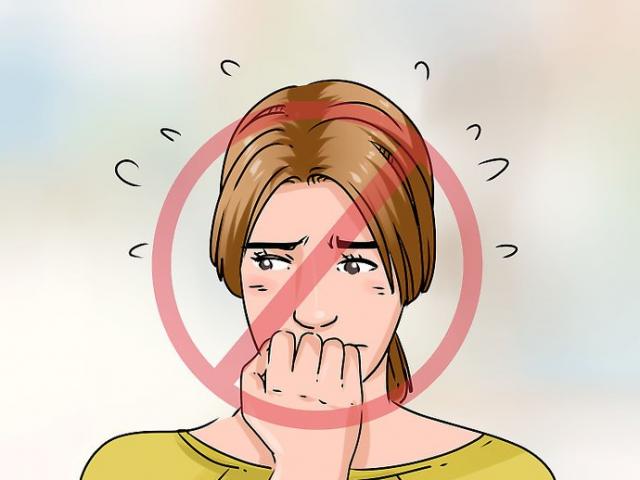 Build confidence by taking one small forward step at a time.
Build confidence by taking one small forward step at a time. - It's OK to feel awkward. Everyone does sometimes. People who are shy are often afraid to feel awkward or uncomfortable. But don't let that keep you from doing what you want. You might feel awkward asking your crush for a first date. That's perfectly natural. Whether your crush says yes — or no — is out of your control. But not asking at all means you'll never get that date. So go for it anyway!
- Know that you can do it. Plenty of people learn to manage their shyness. Know that you can, too.
When Shyness Is Extreme
Most naturally shy people can learn to manage their shyness so that it doesn't interfere with what they enjoy doing. They learn to warm up to new people and situations. They develop their friendliness and confidence and get past shy feelings.
But for a few people, shy feelings can be extreme and can seem hard to conquer. When shy feelings are this strong, they prevent a person from interacting, participating in class, and socializing. Instead of warming up after a while, someone with extreme shyness has shy feelings that build into a powerful fear. This can cause a person to avoid social situations and hold back on trying new things or making new friends. Extreme shyness can make it uncomfortable — and seem impossible — to talk to classmates or teachers.
Instead of warming up after a while, someone with extreme shyness has shy feelings that build into a powerful fear. This can cause a person to avoid social situations and hold back on trying new things or making new friends. Extreme shyness can make it uncomfortable — and seem impossible — to talk to classmates or teachers.
Because extreme shyness can interfere with socializing, it can also affect a person's self-confidence and self-esteem. And it can prevent someone from taking advantage of opportunities or trying new things. Extreme feelings of shyness are often a sign of an anxiety condition called social phobia. People with social phobia often need the help of a therapist to overcome extreme shyness.
Someone with social phobia — or extreme shyness — can overcome it! It takes time, patience, courage, and practice. But it's worth the hard work. The payoff is enjoying more friends, having more fun, and feeling more confident.
Be True to Yourself
We can't change our true inner nature (and who would want to?). If you have a naturally shy style, or if shyness holds you back, you might have to work at developing a sense of ease around new people.
If you have a naturally shy style, or if shyness holds you back, you might have to work at developing a sense of ease around new people.
Most people find that the more they practice socializing, the easier it gets. Practicing social skills — like assertiveness; conversation; and friendly, confident body language — can help people overcome shyness, build confidence, and get more enjoyment from everyday experiences.
Reviewed by: Colleen Sherman, PhD
Date reviewed: October 2020
How to overcome shyness
Daria Kolmina
"Petersburg Notes", 02/03/2020:
The experts told how you can overcome shyness. According to experts, shyness and shyness often prevent people from communicating with others or making some important decision.
To overcome fear and shyness, first of all, you need to learn to remain calm. Then you can make the right decision and not be afraid to turn to a stranger.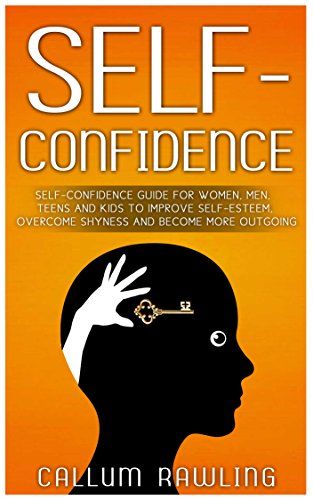
To overcome shyness, understand what exactly you are shy about. Write down on a piece of paper the reasons for your shyness - after that, some fears will disappear by themselves. Then start doing what you are afraid of - this way you can overcome fear.
For a shy person, any conversation can be painful. You are gripped by fear, thinking of possible ways to answer a simple question about the weather.
By default, you keep your distance from others - often people misinterpret this as snobbery. They won't see that you're just afraid to start a conversation.
If your shyness prevents you from interacting with others, you may have a condition called social anxiety.
There are various reasons for extreme shyness. However, this usually happens when people have low self-esteem. They begin to worry about how others perceive them.
Shyness: Definition
Extremely shy people tend to keep others at a distance.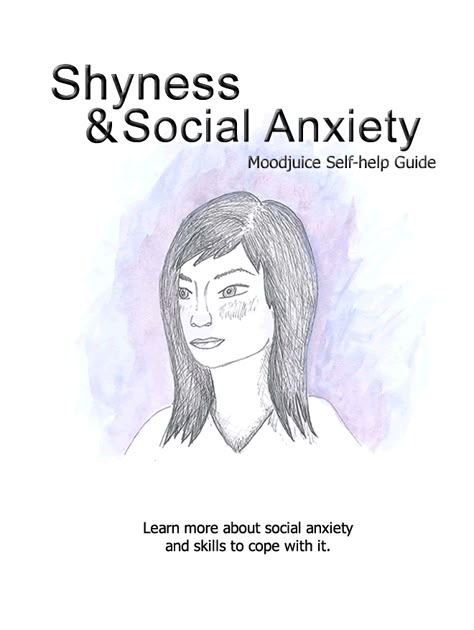 They isolate themselves, trying to avoid social interactions.
They isolate themselves, trying to avoid social interactions.
Some who suffer from extreme cases of embarrassment turn to alcohol to cope. The state of intoxication reduces our inhibitions.
For extremely shy people, drinking is the only way they can interact in society without being overcome by their fears of being judged by other people.
- And recent research shows how shyness can affect a person's well-being and quality of romantic relationships.
- Some extremely shy people develop depression and other emotional and mental problems due to isolation.
- Since human interaction is such an important part of living a happy and fulfilling life, if this activity is neglected, people are likely to have a lower quality of life.
Extreme shyness is different from introversion and childish shyness.
- Introversion is a personality type. Introverts tend to focus on what they think and feel within themselves rather than external stimuli.
 While there are many shy introverts, it doesn't automatically follow that introverts experience extreme shyness or social anxiety.
While there are many shy introverts, it doesn't automatically follow that introverts experience extreme shyness or social anxiety. - Meanwhile, childhood shyness is a stage some children go through when they feel they are shy of strangers. Children usually outgrow this phase, and this is normal for children.
- Extreme shyness is indeed accompanied by a fear of being judged by other people and physical symptoms that come on when interacting with people.
People who are extremely shy may feel their hearts beat faster when they see someone approaching them, or they may sweat or blush.
First, let's look at the causes of extreme shyness.
Causes of extreme shyness
Genetics
Some of your genes may affect how shy you are as a young child or when you grow up.
Geneticists have done research to show exactly which genes cause shyness in people. However, the genetic influence on how shy you are is not permanent, which means that you can change this aspect.
As a general rule, you cannot change other attributes that you get from your genes.
- We all inherit some traits from our parents, and because shy people tend to marry other shy people, these genetics often show up in their offspring.
- However, even if their parents are shy, children can still overcome this trait and be sociable.
Prenatal factors
Some drugs or treatments that pregnant women take can affect the character of the developing fetus.
- In addition, maternal infection in utero—or even stress, trauma, or exposure to environmental toxins—can affect the baby's brain and lead to personality changes.
- The nature, severity and timing of the incident will influence the condition or personality traits that the child will eventually display.
Environment
The most variable factor that can lead to shyness is probably how parents raise their children and the environment in which they grow up. Often you will find a shy child with an outgoing and determined parent.
Often you will find a shy child with an outgoing and determined parent.
In fact, overly assertive parents can outshine their children to the point where they fail to develop their own personalities or social skills.
- A dangerous neighborhood can also be an environment that makes a child shy. In areas where children do not leave their homes unless they need something, they will not develop relationships with people outside the family.
- But these external relationships are important for children to learn how to solve life's problems. Some parents keep their children close even when there is no danger that limits their children's ability to function socially with others.
- The amount of warmth parents show to their children can also affect their levels of shyness. Research has shown that children who receive frequent praise and warmth from their parents experience less anxiety and stress and feel less alone than children who do not feel warmth from their parents.

Traumatic social experience
Some shy people may have experienced bullying when they were younger. While other factors can contribute to shyness, one of the main reasons that often leads to shyness is a traumatic experience that may have triggered ridicule from friends that caused the person to reject other people.
- A young child may view such a situation as an act of betrayal by friends. This traumatic event is likely to become central to the child's conscious thoughts for a while, and then slowly occupy the subconscious mind.
- As the mind tries to get rid of unwanted thoughts, they end up stored in the subconscious. It can cause someone to act in a certain way, even if they cannot pinpoint the reason for it.
Now that you know what might be causing your extreme shyness, let's see what you can do to overcome it.
Ways to overcome shyness
Explore the reasons why you are shy
It could be any of the main reasons mentioned above. Thinking about the root of your shyness can help you realize and accept who you really are.
Thinking about the root of your shyness can help you realize and accept who you really are.
- For example, if you are aware of a traumatic event that made you feel shy, it may be time to get help to deal with those circumstances and memories. Once you learn to process what happened in the past, you will be able to move on with your life and overcome your feelings of shyness.
- If you think this has something to do with your upbringing, consider your relationship with your parents now. Are they still in power? Or are they shy themselves? Another thing that may have happened in your childhood that affects you as an adult has been flagged by other people as being shy. Often people are shy when they are small and then grow out of it.
Unfortunately, some people get attached to this label and continue to treat those they consider "shy" with baby gloves, even if their personality has outgrown it.
You have to admit that shyness is something you can overcome in life.
Rod Gilbert, a prominent comedian, created a documentary to counter his own shyness. The documentary is 60 minutes long and sees Rod looking for reasons why he is shy and trying to find ways to deal with his shyness.
Identify triggers
What makes you run for cover? Is it necessary to ask someone? By identifying the triggers for your shyness, you can plan ahead and create a plan of action when you find yourself in these situations.
You can practice what you will do if you encounter your triggers and work to overcome them.
- Some triggers, such as public speaking, are common. However, some triggers are very specific to a particular person. These triggers can be difficult to identify, but you can get professional help to figure out what they are for you.
- It could be something as small as a smell, a specific place, or even a specific song. Personal triggers are those that consciously or unconsciously remind you of a bad memory.
 People who suffer from post-traumatic stress disorder (PTSD) often experience environmental triggers.
People who suffer from post-traumatic stress disorder (PTSD) often experience environmental triggers.
Most likely, you are not shy in any situation in your life. You're probably fine when you're around your close friends or family, right? Being able to recognize that these people are not so different from strangers is key. The only thing that is different is that you know these people better.
Determining your personal triggers may take some time, but it is important to do so. Then you can take the necessary steps to overcome them.
List social situations in which you experience the most anxiety, and then overcome them one by one.
Think of these things as your “shyness list”. Engage in small talk with strangers or work with the spirit to introduce yourself or even ask someone out on a date.
The more you avoid social situations, the greater your anxiety will be. Act confidently and tell yourself that you have every reason to feel as confident as you can act.
- Join a club or sports team that brings you together and connects with other people. This will help you meet new people who share your interests.
- In addition, by practicing new activities, you will overcome the fear of the unknown, which is often accompanied by extreme timidity.
It's okay if you have to skip the list a bit while you're doing something. Just do what is comfortable for you.
Arm yourself with information
If you go to a party on the weekend and are afraid of small talk, take the time to find information about current topics. It could be the latest viral video, a government issue, or a worldwide event. Study the topic and get the gist.
- This way you will have an arsenal of things to talk about with people when one of those moments of silence comes. If you know what's going on in the world, you might be ready to talk about something with another person they probably know something about too.

- It will also help boost your confidence in social situations. If you don't already feel confident, it will likely get much worse if everyone is talking about a current event that you are not familiar with.
- Make sure you're up to date with what's going on in the world so you can either connect with people who are talking or enlighten someone who isn't.
Repeating self-evaluation affirmations is also a great way to prepare yourself for any social event that bothers you.
Eye contact
Come out of your shell with eye contact. When you make eye contact, you demonstrate your confidence and connect with the other person.
If you suffer from eye contact anxiety, this can also interfere with your daily social interactions.
- The ability to maintain eye contact is a critical aspect of any social interaction. People who can look other people in the eye are seen as friendly and caring. But many people who are either shy or socially anxious have trouble with this aspect of communication.
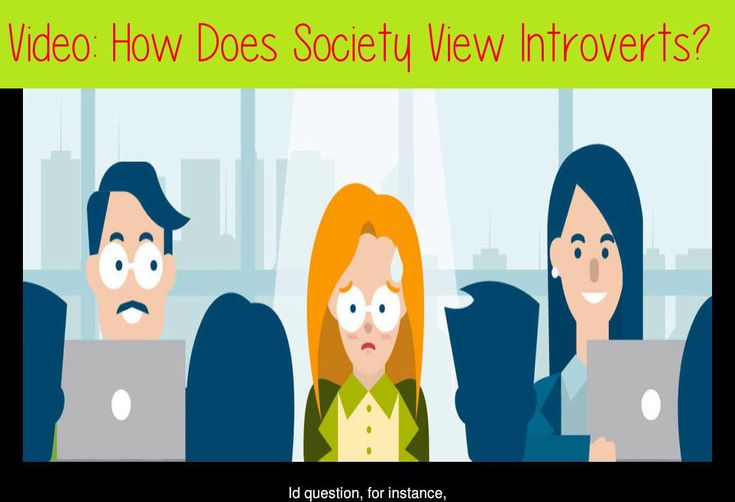
- Looking someone in the eye when you're talking to them can be uncomfortable if you haven't practiced it, or if you don't like being the center of attention.
Smile
Most shy people are considered unfaithful. Give strangers a friendly smile and see that they reciprocate - it will probably improve both your day and their day.
- Smiling is a good way to get to know another person and a great way to start a conversation with someone. You show that you are welcoming, friendly and ready to talk.
- It is often said that people are social beings. Everyone is looking for some kind of interaction with other people. You don't disturb them - you actually make their day better by smiling and talking to someone else.
When you feel more comfortable, natural smiles will come.
Keep track of your progress
Keep track of your progress, even small ones, against shyness in a journal and save it for future reference. List your triggers in your journal along with all the successes you can achieve.
List your triggers in your journal along with all the successes you can achieve.
- Tracking your progress is a great way to stay motivated and keep going. You will be amazed at your progress, which will help you believe that overcoming shyness is definitely possible.
- The time frame for making progress in your shyness can be short or it can be long - it's different for everyone. You just have to believe that you will achieve this goal if you stick to it.
Give yourself a reward for every success
If you've just started getting into the habit of becoming more confident by rewarding yourself for every success, you ensure that this habit stays the same.
This will help your brain learn that everything you do is a challenge, and you'll get some of that in addition to the pleasure of knowing you've conquered fear.
Revisit your favorite movie you've seen 100 times or have some dessert after dinner.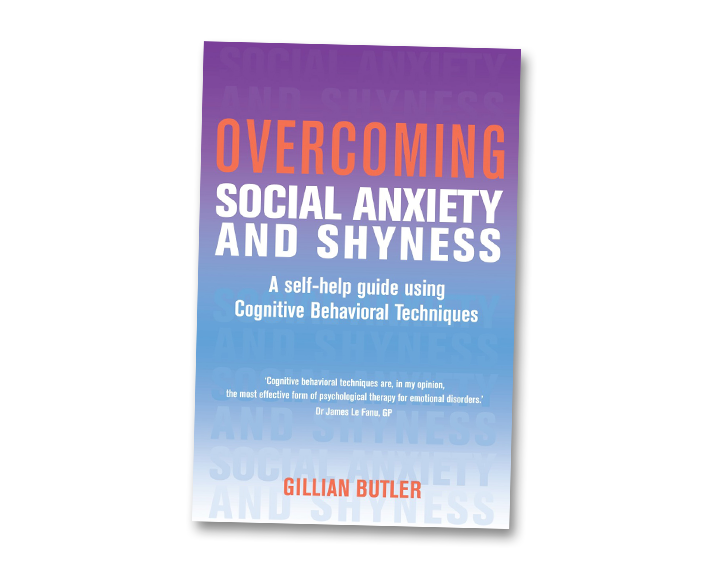 Whatever you find truly beneficial, allow yourself to be pampered after you've made it big, even if it's small.
Whatever you find truly beneficial, allow yourself to be pampered after you've made it big, even if it's small.
Be kind to yourself
Shyness is not overcome overnight. The important thing is that you are working to make things better for yourself, no matter your pace.
- If it seems like it's taking a long time, that's fine, because at least you're making progress. Not only are you constantly working towards your goal, you are also knowledgeable enough to know how well you are doing, which is an important trait.
- Don't torture yourself if you find this process slow. This will only delay your success and possibly tempt you to stop your efforts. Use this as motivation to keep going.
76-year-old Cher: "We are happy and do not bother anyone"
Daughter of Oksana Samoilova: “I understand that it’s hard for you in this situation with dad”
Russian scientists: a new method of extracting potash ores
WhatsApp CEO Will Cathcart announces resignation
Fresh:
76-year-old Cher: “we are happy and don’t bother anyone”
Oksana Samoilova’s daughter: “I understand that it’s hard for you in this situation with your dad”
Russian scientists: a new method of extracting potash ore
What is shyness and how to deal with it
June 15, 2022
15. 06
06
7 minutes
7 minutes
29589
22
1
Updated: 15 June 2022
Updated 15.06
Many are still convinced that modesty adorns, so there is no need to boast and talk a lot about yourself. But what to do if modesty develops into a feeling of embarrassment and begins to interfere with a person's life. We understand what difficulties a shy person faces and how shyness can be overcome.
Article content
- What is shyness
- Reasons for shyness
- What causes shyness
- How shyness manifests itself
- How to overcome shyness
- FAQ
- Expert opinion
What is shyness
In psychology, shyness is understood as a condition in which a person experiences anxiety and awkwardness in certain situations. Often it arises when you need to contact other people, speak in public or put your work on public display. Shyness and shyness are synonymous with shyness.
Often it arises when you need to contact other people, speak in public or put your work on public display. Shyness and shyness are synonymous with shyness.
There are two types of shyness:
| View | Description |
| Internal | Outwardly, this kind of shyness does not manifest itself in any way. The person is quite successful, he easily makes contact and even achieves success. You can't tell from him that he is a shy person. However, the inner tension that he experiences when he needs to contact other people is very strong. |
| External | This is a classic shyness, in which a person tries to minimize contacts and draw less attention to himself. Failure leads to self-doubt and even more shyness. |
The severity of shyness also varies. If it is expressed dimly, a person avoids contact only with certain people or in certain situations. In extreme cases, the feeling of embarrassment arises in any situation that involves communication.
If it is expressed dimly, a person avoids contact only with certain people or in certain situations. In extreme cases, the feeling of embarrassment arises in any situation that involves communication.
Causes of shyness
It is still not known exactly why some people experience shyness in communication, while others do not. However, psychologists identify several factors that can lead to the development of shyness. The main ones are:
- Character features. It is believed that shyness is an innate character trait.
- Lack of social skills. If a child does not go through all the stages of socialization, it is difficult for him to communicate with others and speak in public.
- Some features. People with stuttering and other speech impediments have a harder time interacting with others. They prefer written communication to oral communication.
- Low self-esteem. In this case, a person believes that he is not worthy to communicate with others, therefore he avoids any contact.

- Strict upbringing. If a child cannot speak at home with those closest to him, it is difficult for him to establish communication with others.
- Negative experience. Bullying, scandals, manipulation and other negative options lead to the fact that a person has a fear of contact with other people.
Also, shyness can be a symptom of mental and somatic diseases. For example, mercury poisoning, disorders of neurotransmitter metabolism in the brain, social phobia, anxiety disorder, depression and many others. If shyness arose unexpectedly, you need to see a doctor to rule out the disease.
Book an online consultation if you feel that shyness is interfering with your life. Our psychologists will remotely help determine the causes of shyness and suggest how to overcome this feeling.
What causes shyness
The problem with shyness is that it affects every area of life. With rare exceptions, communication is the key to success in all areas of life. If it is difficult or impossible for a person to communicate with others, this can lead to the following difficulties:
If it is difficult or impossible for a person to communicate with others, this can lead to the following difficulties:
- in personal life - lack of close friends, difficulties in the sexual sphere, getting into dependent and abusive relationships;
- in the field of health - triggering and ignoring diseases, a tendency to alcoholism;
- in the field of career - no professional development, inability to apply for a dream job, difficulties with self-realization;
- in the emotional sphere - constant stress leads to emotional burnout, a feeling of isolation and a feeling of loneliness, depression and apathy.
Due to the negative influence, shyness is classified as undesirable qualities. They seek to get rid of it, or at least make its manifestation less pronounced and painful.
Important! Do not confuse modesty and shyness. Modesty is rather moderation in desires and manifestations of oneself. Shyness is the fear of contact with other people.
How shyness manifests itself
Shyness is easily distinguished from any other inner feelings, such as the excitement of an important speech or the desire to impress a new acquaintance. There are the following symptoms of shyness:
| Manifestation of shyness | Description |
| emotional | At this level, shyness manifests itself as discomfort when communicating with people, anxiety and fear of such communication or public speaking. He feels insecure, which affects his cognitive functions. |
| Behavioral | A shy person is rarely the initiator of communication and tries his best to avoid it. When talking, he tries to avoid direct eye contact, speaks quietly and unintelligibly. He is characterized by a shy look - he looks frowningly and as if past a person. |
| Physiological | Since shyness is based on fear, it manifests itself with obvious physiological symptoms. |
An example of timidity is the behavior of a student during an exam. He knows the subject well and can answer any questions in writing. But as soon as he has to answer the question of the ticket to the teacher, all the information seems to evaporate from his head.
How to overcome shyness
To overcome shyness, you need to understand why it arose. This means that the first step towards getting rid of it is to study. Try to understand why you are afraid to communicate with people, and the fear of public speaking literally paralyzes you. This will help to choose behavior strategies for each such case.
Then you can use the following tricks:
- Don't delay. The longer you put it off, the harder it is to decide. It is better to speak or ask right away, rather than waiting until you are ready.
- Face fear.
 Fear of socializing or speaking in public can be overcome by enrolling in an amateur theater club, a literary or debating club, and public speaking courses.
Fear of socializing or speaking in public can be overcome by enrolling in an amateur theater club, a literary or debating club, and public speaking courses. - Help others. Participation in volunteer projects will help remove the block to communication, and helping others will raise self-esteem.
- Get rid of the inner critic. Our mistakes seem to us something terrible, which absolutely everyone pays attention to. But in fact, it exists only in our heads, and most do not care about the arrow on your pantyhose.
- Look for strengths. Shy people focus on flaws and failures. To change this, you need to try to pay attention to strengths and notice what happens.
- Change environment. This does not mean that you need to completely change the circle of communication. Just analyze which of your loved ones helps and who hinders you. Contact with the latter is best minimized.
- Explore positive experiences. In literature and cinema, many stories have been created that tell about overcoming shyness and fear of the public.
 Study this experience and apply it in your life.
Study this experience and apply it in your life.
And do not forget: Mahatma Gandhi, Stephen King, Pablo Picasso, Kim Basinger and even the famous Hollywood jovial Jim Carrey suffered from shyness. But they still managed to succeed and become public figures.
Book an online consultation if you can't beat your shyness. Our psychologists will remotely help you understand what the problem is and draw up a plan that will help subdue shyness.
FAQ
Are shyness and modesty the same thing?
+
No. These concepts are often confused, but they are not identical. Modesty is the ability to manage oneself and one's desires, a voluntary rejection of ambitions and claims. And shyness is the fear of social contacts and public speaking.
Why is shyness bad?
+
Shyness forces us to avoid social contact, affects our careers and our health. We feel isolated and alone, our self-esteem is further reduced.
We feel isolated and alone, our self-esteem is further reduced.
Why is the person too shy?
+
There is no consensus on this matter. He is embarrassed that character traits, upbringing, previous experience, lack of social skills, certain features (for example, defects in appearance or speech), as well as somatic and mental illnesses, can lead to shyness.
What to do if you are shy?
+
You need to understand what caused shyness, and then make a plan to help overcome it. This is helped by a change in attitudes, the positive experience of other people and classes in circles or clubs in which you need to talk.
Expert opinion
Shyness is a property of the psyche in which a person feels awkward and uncomfortable when he has to communicate with other people or speak in public. It develops under the influence of both external and internal factors. To cope with shyness will help systematic work on yourself.
To cope with shyness will help systematic work on yourself.
We publish only verified information
Article author
Monakhova Albina Petrovna clinical psychologist
Experience 17 years
Consultations 1439
Articles 339
Specialist in clinical psychology. Help in finding tools for self-realization, working out beliefs, fears and anxieties. Work with self-attitude, internal boundaries, understanding of interaction with society through conscious personal changes.
Work with self-attitude, internal boundaries, understanding of interaction with society through conscious personal changes.
- 2007 - 2008 Children's polyclinic No. 4 - teacher psychologist
- 2008 - 2009Healthy Country LLC - Clinical Psychologist
- 2009 - 2021 Republican Narcological Dispensary - psychologist
- 2012 - 2013 Occupational medicine - psychologist
- 2013 - 2015 LLC Vozrozhdenie - psychologist
- 2019 to present Teledoctor24 LLC - psychologist
Sources
- ... Zimbardo F. Shyness (what it is and how to deal with it). - St. Petersburg: Peter Press, 1996.
- ... Lowndes L.
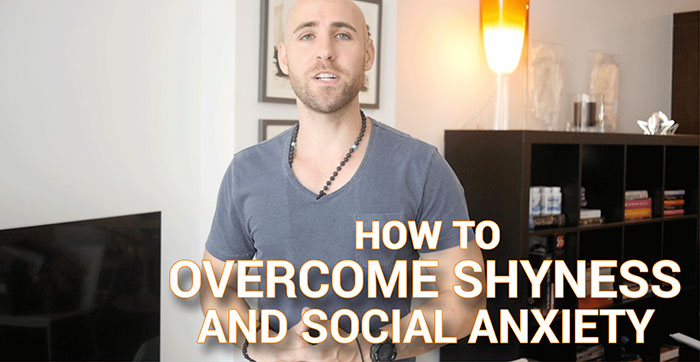 : How to talk to anyone and about anything. Psychology of successful communication. M: Kind Book, 2016.
: How to talk to anyone and about anything. Psychology of successful communication. M: Kind Book, 2016. - ... Lowndes L.: Goodbye, shyness! A practical guide to overcoming shyness and building self-confidence. M: Kind Book, 2016.
- ... Galiguzova L.N. Psychological analysis of the phenomenon of shyness / Questions of psychology. - 2000.
Share:
Category: Psychology
About health Pregnancy and childbirth About children healthy lifestyle Psychology Neurology Gastroenterology Personal care Medicines and dietary supplementsPrevious article
How Autosuggestion Works
Next article
Learned Helplessness Syndrome
Other related articles
Cherepenko Lyudmila Vikentievna
03.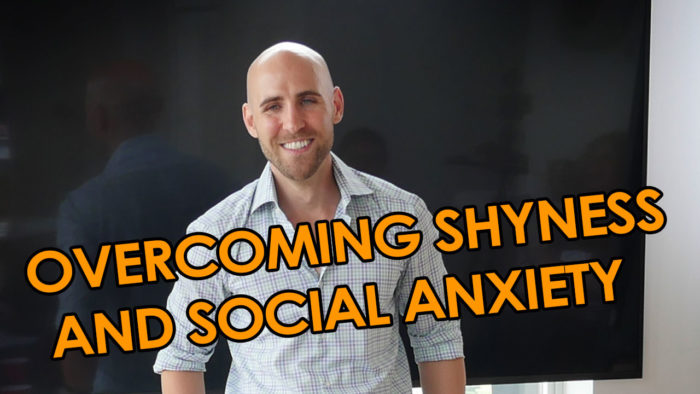
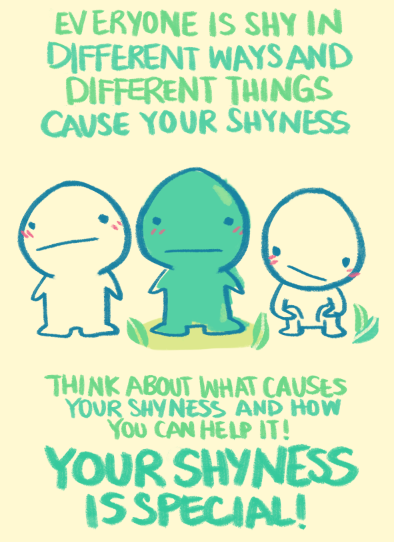 Among them - palpitations, redness of the face, increased sweating, slight tremor.
Among them - palpitations, redness of the face, increased sweating, slight tremor. 